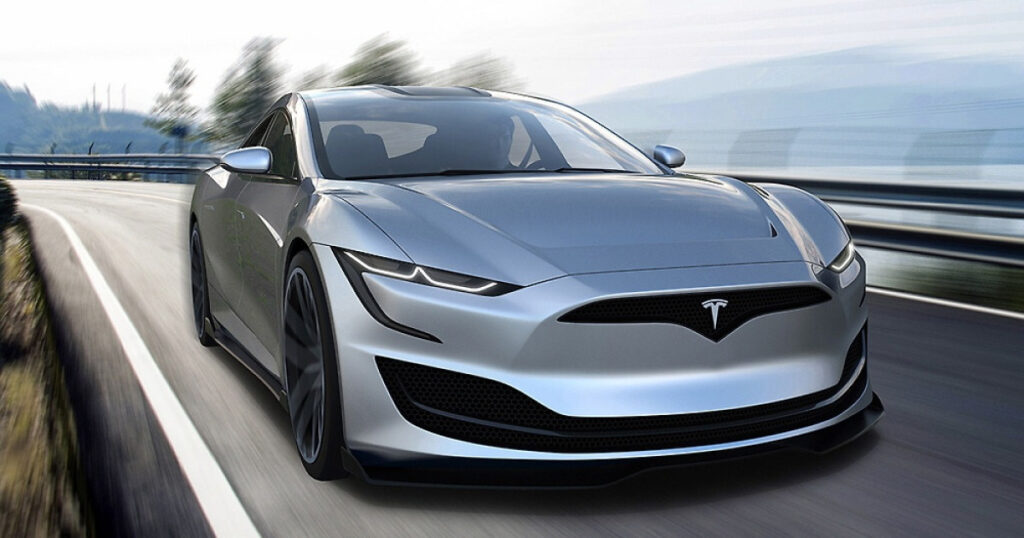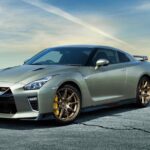Is Tesla a Luxury Car?: Tesla, a name synonymous with electric innovation, has become one of the most talked-about car brands in recent years. Known for its cutting-edge technology, sleek designs, and commitment to sustainability, Tesla has earned a unique place in the automotive industry. But one question continues to arise: Is Tesla a luxury car?
In this article, we’ll explore various aspects of Tesla’s vehicles to determine whether they qualify as luxury cars, looking at performance, design, features, and pricing.
1. Tesla’s Performance: A Benchmark of Excellence
Luxury cars are typically defined by their exceptional performance, and in this area, Tesla stands out. The company’s lineup of vehicles, from the Model S to the Model X and Model 3, offers remarkable acceleration, handling, and range. Tesla vehicles are equipped with high-performance electric motors that provide instant torque, making them some of the fastest production cars in the world.
For example, the Tesla Model S Plaid can accelerate from 0 to 60 mph in under 2 seconds, a feat few luxury sports cars can match. This level of performance not only rivals traditional luxury vehicles but surpasses them in some cases.
Additionally, Tesla’s Autopilot system and Full Self-Driving (FSD) capabilities represent the future of driving. While these technologies are still evolving, they add a futuristic, high-tech element to Tesla’s vehicles that aligns with the definition of luxury: cutting-edge technology that enhances the driving experience.
2. Design and Aesthetics: Modern and Minimalistic
Luxury carsare often associated with elegant designs, premium materials, and an overall sense of craftsmanship. Tesla’s design philosophy, while different from traditional luxury car manufacturers like BMW or Mercedes-Benz, holds a certain appeal.
Tesla vehicles boast minimalist interiors with sleek lines, large touchscreens, and a focus on simplicity. The cabin materials, while not as opulent as those found in high-end European luxury brands, still exude quality with options for premium leather seats, premium audio systems, and advanced climate control.
However, Tesla’s design is often described as more “futuristic” than “luxurious.” While some may appreciate the clean and modern aesthetic, others may find the interiors lacking in the plushness and extravagance associated with conventional luxury brands. In this sense, Tesla’s design leans more toward tech-forward elegance rather than the lavish opulence typically found in luxury cars.
3. Pricing: A Luxury Price Tag
One of the most straightforward ways to evaluate whether a car is a luxury model is by looking at its price range. Tesla offers a range of vehicles, from the more affordable Model 3 to the high-end Model S and Model X.
- Model 3: The most affordable Tesla, starting at around $40,000, is aimed at the mass market but still offers premium features and performance for its price.
- Model S: A higher-end option, starting at around $90,000, the Model S is often compared to luxury sedans like the Mercedes-Benz S-Class and BMW 7 Series. It offers superior performance, extended range, and luxury features, making it a strong contender in the luxury vehicle market.
- Model X: Tesla’s luxury SUV, priced from around $100,000, competes directly with high-end SUVs like the Audi Q7 and BMW X5.
While Tesla may not offer the same extensive luxury options as traditional high-end manufacturers (such as custom interior materials, extensive personalization, and dealer-sourced services), its price tag does put it in the same conversation as other luxury car brands.
4. Technology: The Luxury of Innovation
What truly sets Tesla apart from traditional luxury carmakers is its groundbreaking technology. Tesla’s vehicles are equipped with some of the most advanced features in the automotive world. The centerpiece of this is the Autopilot system, which offers semi-autonomous driving, and the upcoming Full Self-Driving package, which promises to take driving to a whole new level of automation.
The cars are also continuously updated over the air, meaning owners receive the latest software enhancements without visiting a dealership. This is a far cry from the traditional luxury car service model and adds a sense of modern luxury that is rooted in technological superiority.
Tesla’s infotainment systems are some of the best in the industry, with massive touchscreen displays, seamless integration with smartphones, and an interface designed to feel intuitive and futuristic.
5. Sustainability: A New Era of Luxury
Luxury is increasingly being defined by sustainability, and this is where Tesla shines. The brand has built its entire identity around electric vehicles (EVs) and renewable energy, making them a pioneer in eco-friendly luxury. Tesla’s commitment to reducing carbon emissions and promoting sustainable energy aligns with the growing interest among luxury consumers in more environmentally responsible products.
For those who view luxury not just in terms of performance or aesthetics, but in how responsibly a brand operates, Tesla offers an attractive proposition.
6. Conclusion: Is Tesla Truly a Luxury Car?
The answer to whether Tesla is a luxury car depends largely on how one defines “luxury.” If luxury is defined by traditional benchmarks such as craftsmanship, opulence, and exclusivity, Tesla may not fully align with these traits. Its interiors, while sleek and modern, may not offer the lavish feel associated with brands like Rolls-Royce or Bentley.
However, if luxury is redefined as cutting-edge technology, exceptional performance, and sustainability, then Tesla undoubtedly fits the bill. Tesla’s cars deliver a unique combination of innovation, high performance, and eco-consciousness that appeals to a new generation of luxury car buyers.
In the end, Tesla is not just a car; it’s a statement about the future of transportation. Whether it’s classified as a “luxury” car is a matter of perspective, but it certainly offers a level of prestige and performance that aligns with the aspirations of today’s luxury consumer.



